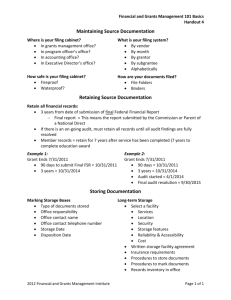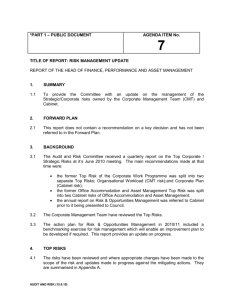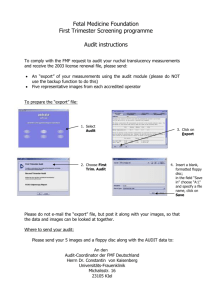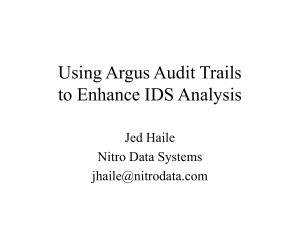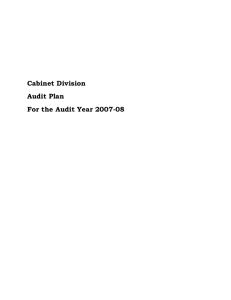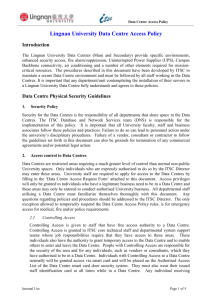Information Technology Audit Status Report March 1, 2014
advertisement
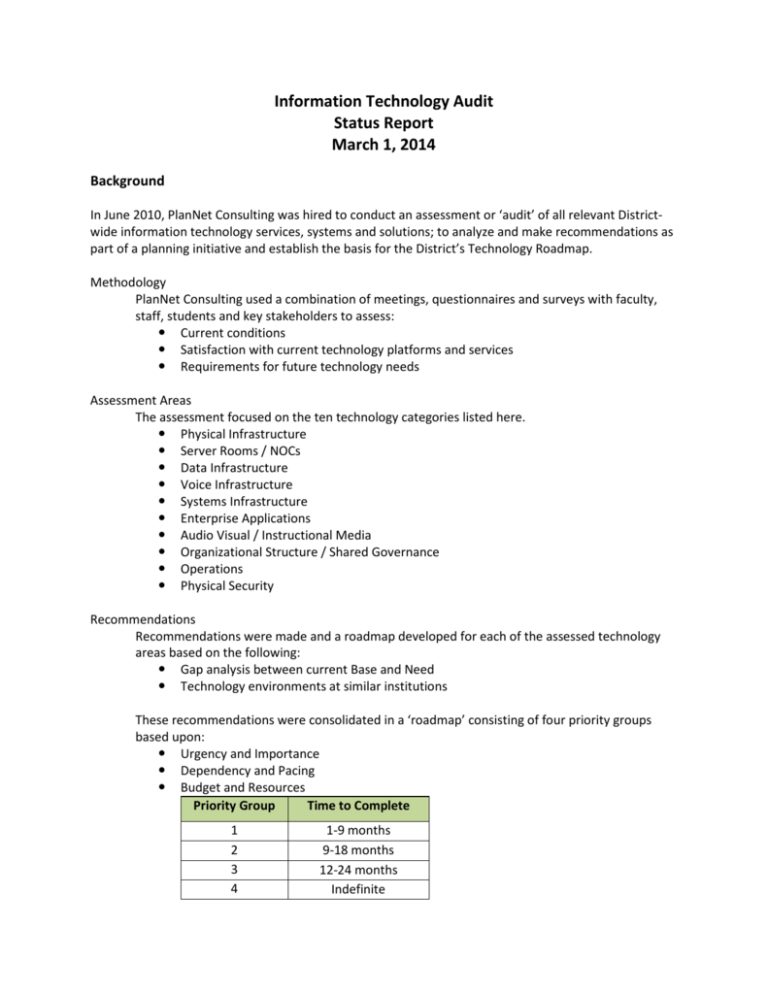
Information Technology Audit Status Report March 1, 2014 Background In June 2010, PlanNet Consulting was hired to conduct an assessment or ‘audit’ of all relevant Districtwide information technology services, systems and solutions; to analyze and make recommendations as part of a planning initiative and establish the basis for the District’s Technology Roadmap. Methodology PlanNet Consulting used a combination of meetings, questionnaires and surveys with faculty, staff, students and key stakeholders to assess: Current conditions Satisfaction with current technology platforms and services Requirements for future technology needs Assessment Areas The assessment focused on the ten technology categories listed here. Physical Infrastructure Server Rooms / NOCs Data Infrastructure Voice Infrastructure Systems Infrastructure Enterprise Applications Audio Visual / Instructional Media Organizational Structure / Shared Governance Operations Physical Security Recommendations Recommendations were made and a roadmap developed for each of the assessed technology areas based on the following: Gap analysis between current Base and Need Technology environments at similar institutions These recommendations were consolidated in a ‘roadmap’ consisting of four priority groups based upon: Urgency and Importance Dependency and Pacing Budget and Resources Priority Group Time to Complete 1 2 3 4 1-9 months 9-18 months 12-24 months Indefinite District Response The District’s response to the IT Audit is summarized below: Jan 2011 Mar 2011 Apr 2011 – Apr 2012 May 2012 Apr 2013 Recommendations accepted IT Implementation Committee formed Roadmap reviewed by ITIC to validate recommendations, confirm status on specific projects and determine priorities Roadmap revisions approved by Executive Cabinet IT Strategy Council launched to implement revised plan IT Strategy Council As commissioned by the Executive Cabinet, the ITSC “…will provide a collaborative forum to advise and inform the Chancellor’s Executive Cabinet and the District Strategic Planning Committee in setting priorities and making strategic decisions involving the provision of information services and technology to advance the institutional goals of the RCCD and its three colleges.” The current membership consists of: AVC, Information Technology and Learning Services (Chair) College Vice Presidents for Business Services (1 from each college) College Technology Committee Chairs & Co-Chairs (1 from each college) Chief of Staff and Facilities Development Student Representative (1 from each college) The ITSC has adopted the following ‘12 Key Considerations’ when evaluating current and future recommendations. Validity Alignment Urgency Impact Criticality Compliance Functionality Dependency Sustainability End-of-Life Cost Efficiency / Effectiveness Grant Funded Current Status The following table summarizes the high level status of the IT Audit recommendations as of January 1, 2014. Priority Group Recommendations Completed In Progress Not Started 1 2 19 17 7 5 4 1 8 11 3 4 10 4 2 0 6 4 2 0 An itemized listing of the completed projects is provided here: 1. Upgrade NEC PBXs 2. Complete voice system requirements study/specification 3. Repair emergency phones at MVC 4. Adopt formal IT infrastructure standards document 5. Charter four new shared governance committees 6. Clarify student email account policies with Microsoft 7. Engage third-party resource to evaluate Datatel tuning 8. Create college-specific domains in Active Directory structure 9. Leverage Footprints Help Desk to enhance inventory reporting and incident analytics 10. Replace (Virtual Private Network) VPN concentrator 11. Evaluate Moodle as new hosted and managed LMS platform 12. Replace Adobe Contribute with SharePoint as web CMS 13. Revisit Datatel SIS platform decision 14. Consolidate to single platform for AV media content creation and distribution Next Steps The ITSC meets on a monthly basis. The following have been identified as District tasks to be completed in 2014. Complete reassessment Finalize prioritization Revise implementation timeline Establish internal audit guidelines Review, update and develop technology policies/standards and procedures Provide regular updates to Executive Cabinet and the Board of Trustees Summary The goal of the IT Audit was to provide a comprehensive assessment of technology within the District – its condition, use and ability to sustain the current and future needs of students, faculty and staff, with recommendations for bridging identified gaps. The challenge is to constantly review, reassess, re-evaluate and potentially realign our technological position as we continue to serve our ever-evolving educational environment moving forward. This can be accomplished as long as the District remains committed to the foundation established by the IT Audit and supports the strategies formulated by the IT Strategy Council.
